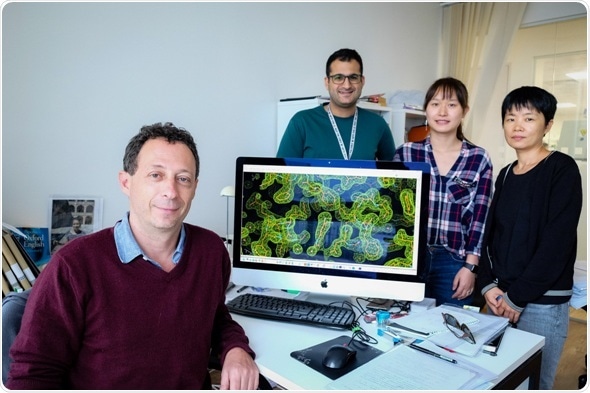A team of molecular and structural biologists from Nanyang Technological University, Singapore (NTU Singapore) have found a potential new route to disabling respiratory syncytial virus (RSV) and human metapneumovirus (HMPV) after elucidating the structure of one of its key components.

(left) NTU Assoc Prof Julien Lescar, Dr Abbas El Sahili, PhD student Ms Jia Huan and Dr Xinlei Qian, who imaged and analysed an enzyme that could be key to disabling respiratory syncytial virus (RSV) and human metapneumovirus (HMPV), both which currently have no effective cure or vaccine.
RSV and HMPV are two closely related viruses causing severe and life-threatening respiratory diseases such as pneumonia and bronchiolitis in premature babies and infants, the elderly, and anyone with a weak immune system.
According to UNICEF, pneumonia killed a child somewhere in the world every 39 seconds in 2018, but there are no vaccines or effective antiviral therapies against it.
As they infect human cells, HMPV and RSV commandeer the cell’s machinery to make copies of themselves. To initiate the process, special proteins released by the virus interact with each other to make distinct protein complexes.
Writing in Nature, Dr Julien Lescar from NTU’s School of Biological Sciences and his team report how they have used cryo-electron microscopy to image the molecular structure of one of these large complexes, an enzyme called HMPV L:P polymerase.
Analysis of these model structures revealed key sites for molecules to interact at, offering new targets for designing antiviral molecules against both viruses.